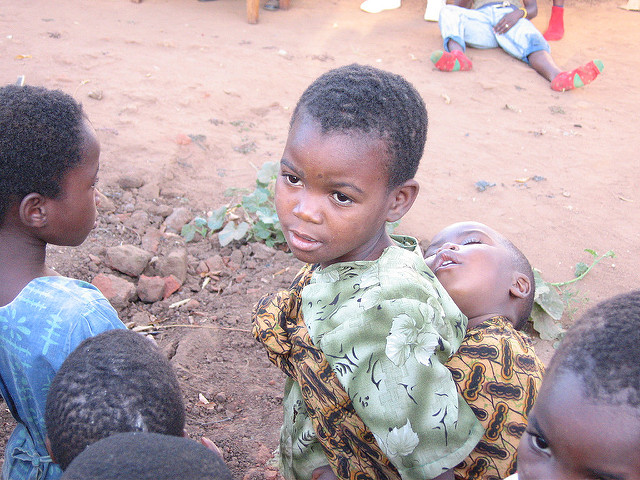Deadline: 14 October 2019
The United States Agency for International Development (USAID) is seeking applications for a Cooperative Agreement from qualified entities to implement the Orphans and Vulnerable Children (OVC) Activity.
The overall objective of the USAID/Mozambique’s Orphans and Vulnerable Children and Young Girls (OVC) Activity (“Activity”) in Manica and Sofala is to “Reduce HIV incidence and mortality among children and adolescents in Mozambique through a comprehensive package of services in targeted provinces.” This Activity contributes to USAID’s Country Development Cooperation Strategy for Mozambique Development Objective 4 – Health status of target population improved as well as and Intermediate Results 4.1 – Improved ability of individuals to adopt healthy behaviors; and 4.2 – Increased adoption of positive health and nutrition behaviors.
Expected Results
This objective will be achieved through the following expected results:
- R 1: Reduction in HIV, sexual violence and gender-based violence (GBV) amongst children and adolescents
- R 2: Improved treatment, retention and viral suppression for HIV+ OVC and caregivers
- R 3: Improved children, adolescent, and caregiver resilience to cope with effects of HIV
Funding Information
- USAID intends to award up to two Cooperative Agreements pursuant to this notice of funding opportunity. Subject to funding availability and at the discretion of the Agency, USAID intends to provide approximately $14,200,260 in total USAID funding over a 5 (five) year period.
- The anticipated period of performance is 5 (five) years. The estimated start date will be upon the signature of the award, on or about, or other effective date determined by the Agreement Officer.
Geographic Scope
This activity will be implemented in Manica and Sofala provinces within PEPFAR-defined geographic priorities. Geographic coverage can potentially decrease or expand during the timeframe of this activity based on PEPFAR prioritization over time, as directed by PEPFAR and USAID. Districts of intervention will be defined on a yearly basis during the development of annual work plans, considering priority health facilities identified as “AJUDA” sites. AJUDA (“Analyzing Joint Underperformance and Determining Assistance”) is a strategy identified by PEPFAR Mozambique to support and conduct more rigorous and tailored monitoring support to selected sites to promptly respond to the barriers clients face both at facility and community levels. USAID will provide clear guidance on geographic prioritization to the applicant prior to implementation of this activity.
For year one of implementation the following districts have been prioritized:
- Manica Province – Barue, Chimoio, Gondola, Manica, Machaze, Sussundenga and Mossurize,
- Sofala Province – Beira, Buzi, Dondo, Nhamatanda
For the remaining years of the award, priority districts will be defined on an annual basis, considering PEPFAR priorities and USAID guidance, nevertheless applicant(s) should budget for costs considering the same amount of districts per province as year one.
Target Populations
PEPFAR/Mozambique has identified a number of priority populations based on epidemiological and contextual considerations. In COP 19, PEPFAR highlighted a continued focus on primary prevention of sexual violence and HIV for 9-14 year-olds (i.e., preventing any form of coercive/forced/non-consensual sex and preventing early sexual debut); treating the trauma of sexual violence; integrating these approaches with OVC programs; and identifying, reaching, and retaining children and adolescents living with HIV. While also continuing to support pediatric defaulter tracing, the OVC activity will increase collaboration with clinicians to provide wrap-around services to prevent lost to follow-up (LTFU) for the highest-risk children and adolescents. This activity will prioritize the following target populations:
- Orphans and vulnerable children aged 0-17
- Children living with HIV
- Children whose caregivers are living with HIV
- Adolescents aged 9-24
- Children of female sex workers (FSW)
- Children who have experienced violence
Eligible Applicants
- Eligibility for this RFA is restricted to Local Mozambican Organizations (Local Entities) as defined. “To be considered a “local” organization, USAID defines an entity that must:
- Be organized under the laws of the recipient country;
- Have its principal place of business in the recipient country;
- Be majority owned by individuals who are citizens or lawful permanent residents of the recipient country; and/or
- Be managed by a governing body, the majority of whom are citizens or lawful permanent residents of a recipient country
- Not be controlled by a foreign entity or by an individual or individuals who are not citizens or permanent residents of the recipient country.
- The term “controlled by” means a majority ownership or beneficiary interest as defined above, or the power, either directly or indirectly, whether exercised or exercisable, to control the election, appointment, or tenure of the organization’s managers or a majority of the organization’s governing body by any means, e.g., ownership, contract, or operation of law.
- “Foreign entity” means an organization that fails to meet any part of the “local organization” definition.
- Government controlled and government owned organizations in which the recipient government owns a majority interest or in which the majority of a governing body are government employees, are included in the above definition of local organization.
- These eligibility requirements apply to only the principal Applicant.
- USAID welcomes applications from organizations that have not previously received financial assistance from USAID.
How to Apply
Applications must be submitted via email at the address given on the website.
For more information, please visit https://www.grants.gov/web/grants/view-opportunity.html?oppId=320502
